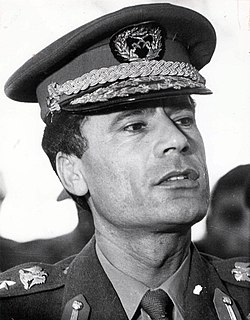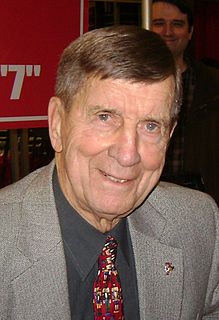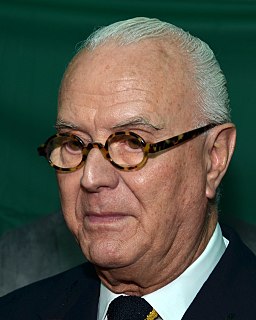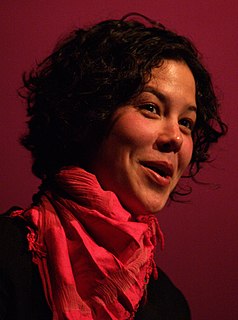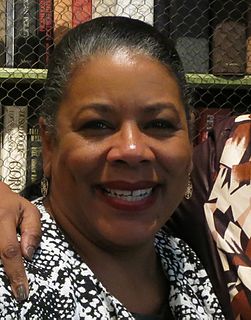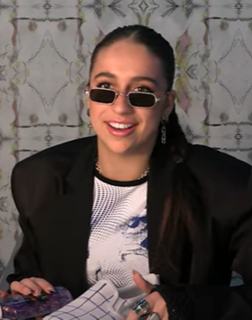A Quote by Dee Rees
I very much related to the idea of sexual identity and how it doesn't have to be black and white. When I first came out, there would be butch people in baseball caps, and that wasn't me, and then there were girls in heels and dresses, and that didn't feel like that was me either. But after a while I learned there's a lot of ground in between.
Related Quotes
The strange thing about my life is that I came to America at about the time when racial attitudes were changing. This was a big help to me. Also, the people who were most cruel to me when I first came to America were black Americans. They made absolute fun of the way I talked, the way I dressed. I couldn't dance. The people who were most kind and loving to me were white people. So what can one make of that? Perhaps it was a coincidence that all the people who found me strange were black and all the people who didn't were white.
I believe I live in a black and white. I think things are like either black or white. I don't really believe that much in the gray. I think that there's gray for a lot of people, but I don't live in the gray. I realize whatever action I have or take, it's going to have a consequence -- either good or bad. So I live my life in a way where I don't have bad consequences. I just notice there's a lot people around me just live in the gray. I don't know, for me, I'm just really straightforward.
The most tragic moment of my life was the first show I ever designed for. I had been asked to make shoes for Ossie Clark's show in the early '70s. I was so inexperienced that I didn't put the steel in the heels of the shoes, which is required to support the shoe and the wearer. So the girls came out walking very strangely in these rubber, bendy high-heeled shoes I had made. I thought 'Oh dear god! This is the end of me.' But after the show, even David Hockney and Cecil Beaton said to me 'It was so interesting that the girls were moving in such a different way.'
I learned a lot about my parents, who were both teachers. I had known that my parents were very strongly in favor of education. I had known that they had an impact on a lot of people, but people came out of the woodwork who have said, "You know, without your father, I would never have gone to college," very successful people. And so I learned how widespread their educational evangelism really was.
For people who are coming out of an oral tradition, it is very exciting to get into reading and writing and it is quite interesting how frequently people want to write their own story. Sometimes it is straight history - this is how we came about, how our town was created, a lot of that kind of effort, as soon as literacy came. The first thing you wanted to do was to put something down about who you are or how you are related to you neighbors. Then the next stage would be the stories, the cultural part of the story: this is the kind of world our ancestors made or aspired to.
Look at how lucky white people are compared to black people, who have suffered so much just because of their skin color, and then there are native people, who were the first people of this country and have suffered so much just because some newcomers came over and said 'hey this looks like a nice place to set up camp, just hand it over to us.'
Throughout my career, I have benefitted from the experience and counsel of a wide range of people who took a very personal interest in me. As a result, I am always happy to share lessons learned from my journey with others. I am particularly passionate about mentoring young black girls. While we are a very diverse group, there is a special bond that connects us to each other. When I work with them, I see them in me and I believe they see me in them. By coming together, we are able to show the world the power and the promise of black girls.
White people's fear of Black people with guns will never cease to amaze me. Probably it's because they think about what they would do were they in our place. Especially the police, who have done so much dirt to Black people - their guilty conscience tells them to be afraid. When Black people seriously organize and take up arms to fight for our liberation, there will be a lot of white people who will drop dead from no other reason than their own guilt and fear.
The biggest surprise for me, without a doubt, was that the first black people who came to the United States weren't the 20 who arrived in Jamestown in 1619. All of us had been taught that. Well, guess what? The first African came to Florida in 1513. And the huge shock is we know his name, Juan Garrido, and that he wasn't a slave. He was free! This brother was a conquistador who came with Ponce de Leon. He was looking for the Fountain of Youth just like the white people were.
There are little Indian girls out there who look up to me, and I never want to belittle the honor of being an inspiration to them. But while I’m talking about why I’m so different, white male show runners get to talk about their art. I always get asked, ‘Where do you get your confidence?’ I think people are well meaning, but it’s pretty insulting. Because what it means to me is, ‘You, Mindy Kaling, have all the trappings of a very marginalized person. You’re not skinny, you’re not white, you’re a woman. Why on earth would you feel like you’re worth anything?’


